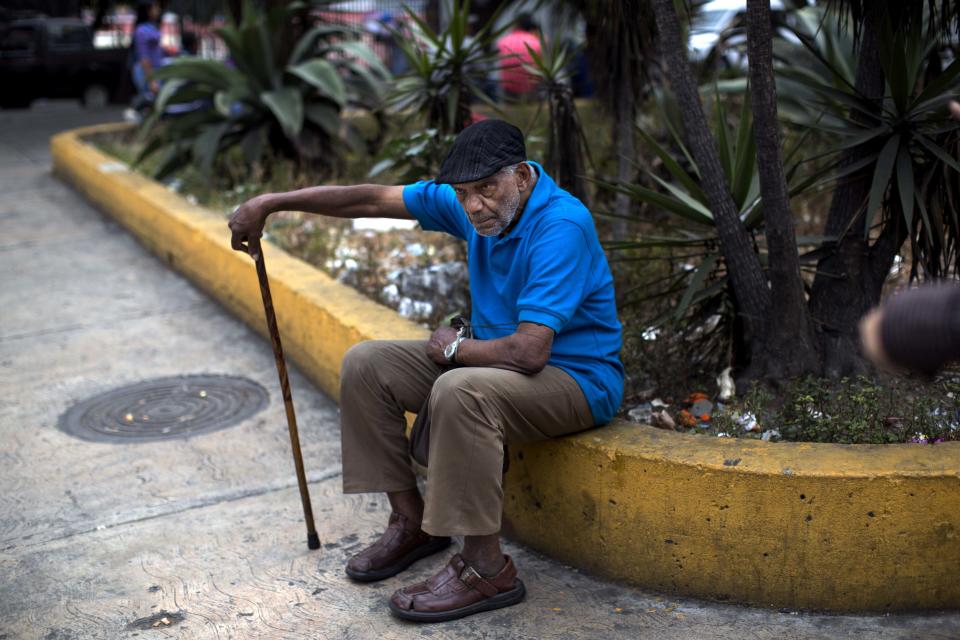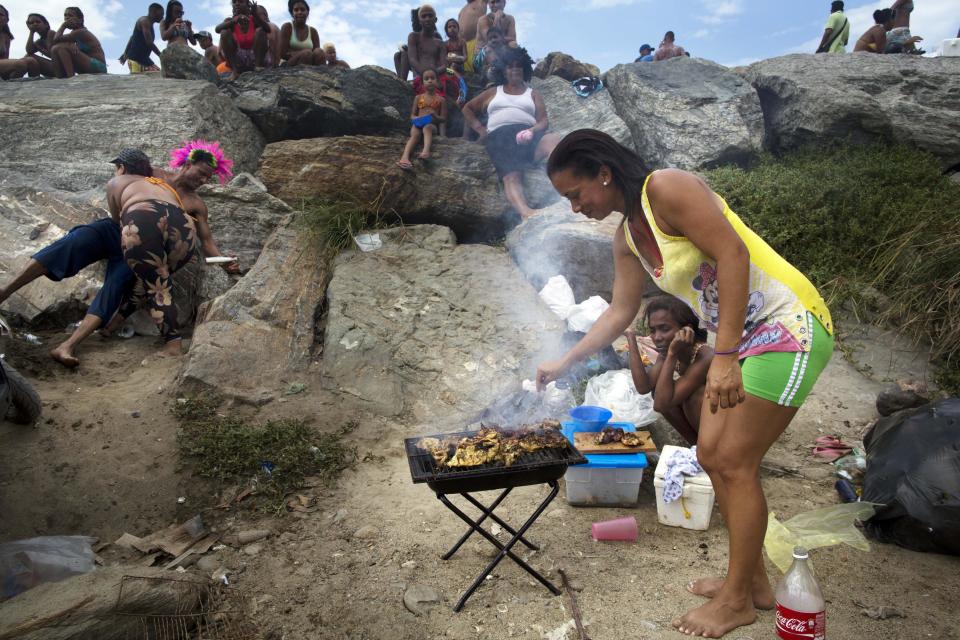Venezuelan student protesters seek to woo poor
PETARE, Venezuela (AP) — The two students venture into one of Latin America's biggest slums for the first time, feeling scared and somewhat awkward. Their mission: to broaden support for their anti-government protest movement in the low-income barrios whose working poor the late President Hugo Chavez championed.
"Our families didn't want us to come up here," says Fernando Viscuna, a 21-year-old international commerce major at the Instituto Universitario de Nuevas Profesiones. "But if you want a better country, it's got to be done."
He and Jhony Pulido, a curly-haired 22-year-old economics student at Andres Bello University, are earnest foot soldiers in an incipient bridge-building effort by students whose five-week-old protest movement has badly convulsed the country and triggered a firm government crackdown.
The students have no illusions. If anything is to change, they need allies in the very districts that Chavez converted into bulwarks of support by investing tens of billions of dollars in oil income in generous social welfare programs.
In two hours of knocking on doors and canvassing shop owners in the hilltop barrio of El Morro, accompanied by a local auto mechanics teacher allied with the opposition, the students get a polite but mostly cool reception.
Most people barely engage them. Some, like 79-year-old retired plumber Valentin Castillo, openly dismiss them.
"You're killing a lot of people, torching cars. You're against us, against everyone," Castillo says, raising his voice.
"Exactly. We agree with you. We're against the blockades, too," says Viscuna, trying to get in a word.
But Castillo doesn't buy it.
He mentions the slaying of National Guardsmen, the government's shock troops against protesters, by unknown gunmen — four have now been killed — and a motorcyclist who authorities say was killed by a steel cable stretched across a street by protesters.
"What are they looking for with this fight?" Castillo demands, doubting Viscuna's claim not to endorse violence or seek the overthrow of President Nicolas Maduro.
Some people the students meet say they, too, are fed up enough with worsening food shortages, crippling inflation and unchecked violent crime — the very maladies that precipitated the unrest — and would take to the streets, too, but for their fear of pistol-packing pro-government posses known as "colectivos" that have violently suppressed dissent. The colectivos have been implicated in at least six protest-related killings, only one in metropolitan Caracas.
Katherin Castillo, a 35-year-old single mother of five, and her neighbors are exhausted by the roulette that food shopping has become, of spending hours in queues outside state-run supermarkets in hopes that flour, milk, cooking oil will show up at subsidized prices.
On this morning, chicken is all Castillo has on offer at the storefront canteen where she serves cheap breakfasts.
"I would go out and protest. But I'm afraid," Castillo says after the students leave. "The colectivos are abusing their power, and a mother can't take risks."
The auto mechanics teacher who accompanies the students, Jorge Idrogo, says colectivos threw him to the street when he tried to protest at a busy Petare intersection on Feb. 17, his banner torn away while national police stood by idly. Such stories about colectivos abound.
Earlier this month, colectivos twice prevented students from entering Petare to explain themselves in assemblies with residents in two districts, says Idrogo, 35.
"It's the only way around the government media blackout," he says. State-run media portray student protesters as violent troublemakers bent on destroying the gains of 15 years of socialist-inspired advances.
Student leader Alfredo Graffe of Simon Bolivar University said the movement has held more than a dozen informational meetings in working-class districts since late February, but says it is only safe for students to visit by daylight.
In the lower middle-class district of Caricuao in Caracas' mostly pro-government west, colectivos have broken up all five student-organized protests since mid-February. In other parts of the proletarian west, students have dared not even try.
Which is why the handbill that Idrogo presses into people's hands as he works his neighborhood with the students, his wife and two young children, stresses the shared problems of all Venezuelans in simple language spoken by stick figures in comic book-like balloons.
"I've been robbed."
"I don't know when the water will come back on."
"They didn't get the guy who killed him."
"Two months without obtaining milk."
The handbills that the students distribute use fancier words and list demands: The government must acknowledge that its economic policies are bankrupting the country. It must halt censorship, reverse violent crime that has made Venezuela a world leader in murder.
But Venezuela's poor are, on the whole, more worried about losing the pensions, subsidies, education and basic health services gained under Chavez if the opposition were to come to power.
That's what University of Georgia sociology graduate student Rebecca Hanson says people tell her in the sprawling working-class district of Catia in Caracas' west, where she has been living on-and-off since 2009. "I think people are widely interpreting the protests as seeking to get Maduro out of office and nothing else."
On top of that, the students have not clearly articulated an agenda, says Luis Vicente Leon, director of the Venezuelan Datanalisis polling firm. And they're divided among moderates and radicals just like the main opposition parties.
"I'd say the majority are moderates, but they've been tainted by the radical battle at the barricades, and get blamed for it," says Leon. In all, at least 27 people have been killed in the unrest, by government count.
Ironically, many of the protesters who have battled riot police regularly in Caracas' upper class Chacao district in recent weeks hail from poorer barrios, where they say they don't dare protest publicly.
Those who have tried to organize peaceful marches in their home districts say the repressive response from armed, government-allied groups has been swift.
When colectivos broke up a Feb. 17 protest in the southwestern district of Caricuao, firing tear gas and blocking marchers with motorcycles as National Guardsmen stood by idly, a local colectivo leader approached the father of Jefres Henriquez, a 23-year-old student activist who lives there.
The leader knew both father and son because Henriquez had once worked at a children's summer camp that the colectivo runs.
"He showed my father a photo of me and said, 'We need to take action against your son,' said Henriquez.
So he fled, and didn't return for a week.
"When I got back, I got calls from colectivo members who said they wanted to meet with me," said Henriquez.
Fearful, he declined.
___
Associated Press writer Fabiola Sanchez contributed to this report.
___
Frank Bajak on Twitter: http://twitter.com/fbajak





